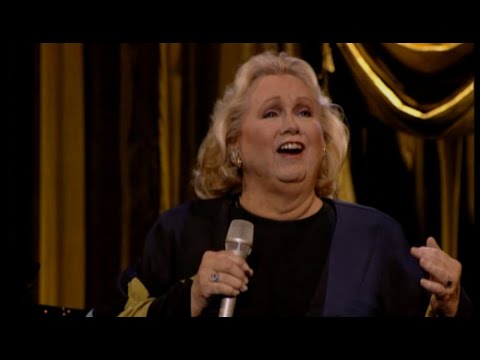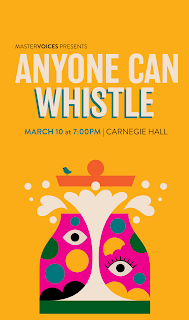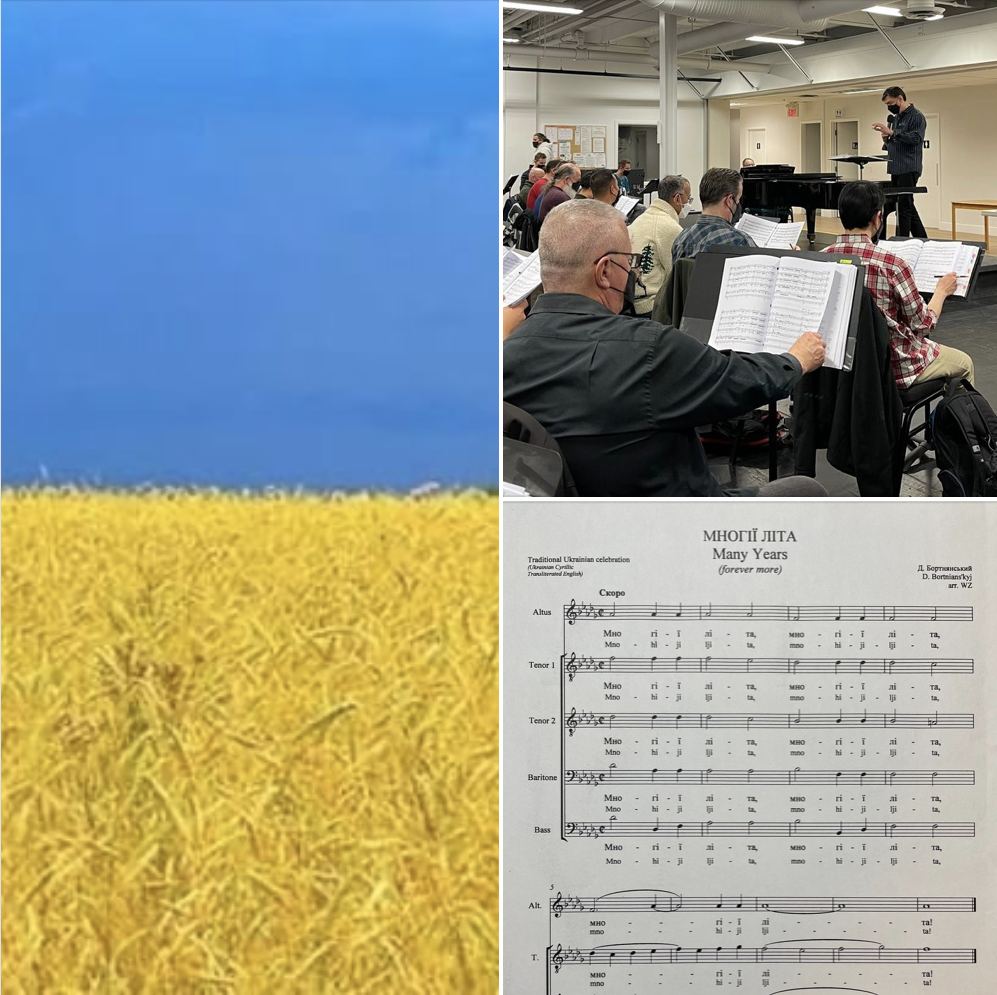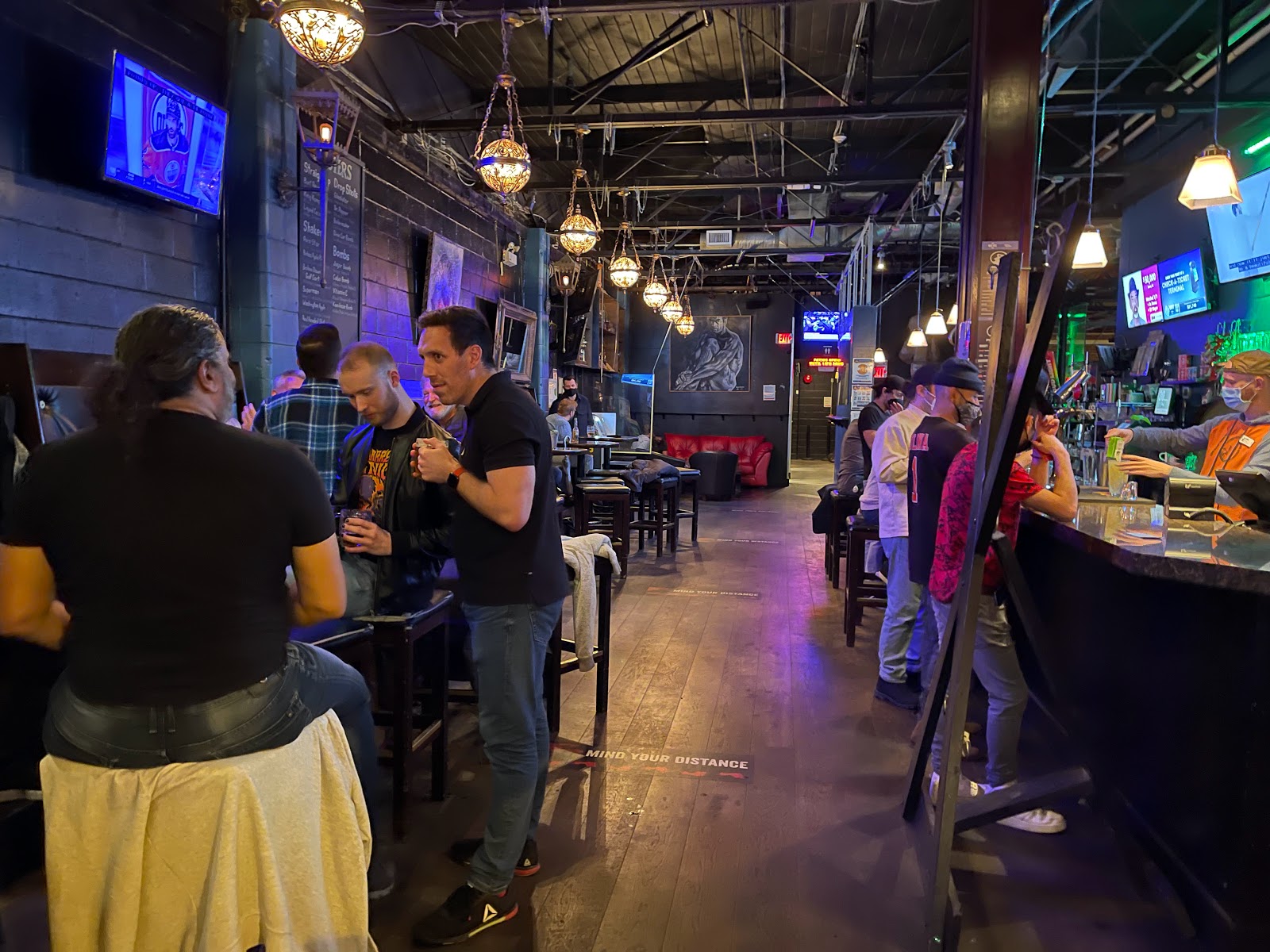 |
| Barbara Cook singing "Anyone Can Whistle" on YouTube |
Every musical theatre nerd mourns the loss of Stephen Sondheim, our adoptive artistic father, who died in November 2021 at age 91. I heard the incomparable composer speak a few years ago when I was still a lawyer in Seattle. Frank Rich interviewed Sondheim on the stage at Benaroya Hall in an event presented by Seattle Arts & Lectures.
The year my mother turned sixty, I bought us tickets to see Barbara Cook perform at Benaroya. She was touring with a concert consisting of music by Sondheim, plus a few other showtunes he told Barbara he “wished he had written.” For her encore, Barbara sang an unadorned arrangement of “Anyone Can Whistle,” accompanied at the piano by her longtime musical director Wally Harper.
Anyone who gets to share Barbara Cook singing “Mostly Sondheim” with his mother is a pretty lucky fella.
This week’s “Must See” list in New York magazine highlights Thursday’s extraordinary musical event:
In a big Carnegie Hall celebration, MasterVoices honors one of Stephen Sondheim’s earlier, odder cult favorites, a 1964 satire written with Arthur Laurents about fake miracles, asylum patients who take over a town, and a corrupt (or playful?) solution for public health. Revivals of Whistle don’t come along often, but concert productions have kept its weird flame flickering. Vanessa Williams plays Cora, the crooked mayor.
A young Angela Lansbury was destined for musical theatre immortality after originating the role of the mayoress, even though the original production closed after just nine performances. I’ve never seen Anyone Can Whistle. No one has. But in addition to tackling mental illness, the show introduced Sondheim standards like “There Won’t Be Trumpets,” “I’ve Got You to Lean On,” and “Everybody Says Don’t.”
Obviously I know the original cast album by heart, as well as the recording of the famous AIDS benefit at Carnegie Hall in 1995. Madeleine Kahn played the mayor, Angela Lansbury narrated, and Scott Bakula was mysterious stranger J. Bowden Hapgood. Bernadette Peters played Nurse Fay, who sings the title song.
I’m almost to the end of my first book manuscript, entitled Anyone Can Whistle: A Memoir of Religion, Showtunes, and Mental Illness. I’ll finish writing the memoir as soon as I finish living through this part of my story – hopefully later this year.
A couple of years ago, I went through The Narrative Project’s flagship “Finish Your Book!” writing program. Under Cami Ostman’s expert guidance, I found a writer’s community where I learned to write through and about trauma. The nine-month program offered the perfect opportunity to practice my craft with the support and encouragement of other writers – even as I endured gaslighting lawyers and stonewalling bureaucrats, and single parented three teenagers through a pandemic.
I thought I would finish writing my memoir during the formal The Narrative Project program. Instead, I made immeasurable progress toward mental health and happiness. Meanwhile, after over half a million words of public blog essays and an even greater volume of legal filings and private journaling, Anyone Can Whistle needed to find its own voice and structure as a book. And to lose weight.
So I ruthlessly edited out all the tedious lawyer stuff, exiling it to a future sequel. The title will be Too Many Lawyers, an homage to my favourite mystery novelist Rex Stout, who published “Too Many Witnesses,” “Too Many Cooks,” “Too Many Clients,” and “Too Many Women.” Everything Is Connected became the working title for my research and writing about neuroscience and psychology. It would be my dissertation, if they awarded graduate degrees for reading a lot of interesting books while recovering your mental health.
As I sit at my desk each morning, I ask myself whether today’s best story will be about a Father, a Writer, or a Lawyer. Readers vote overwhelmingly for “Father.” So as soon as I’m done with my tedious lawsuits and can finish telling my gay Mormon PTSD story in Anyone Can Whistle, I’ll focus on writing about Gay Sitcom Dad.
As I wrote in “Buster,” last month I was one of the writers reading from our recent work at the launch of a new anthology. My contribution to True Stories, “For Good,” comes from the chapter of my memoir where I explain that I’m not really a dog person.
Bear and Buster are purebred Aussiedoodles – one of the most popular of the trendy class of “doodles.” My ex and his husband were friends with a local breeder. I never wanted a dog myself – to the contrary, I was comfortable in my role as the dogs’ fabulous gay uncle. Besides, if I’d chosen a dog, I would have picked what in my day we called a “mutt.”
When my ex and his husband divorced a couple of years later and I ended up with three kids and two dogs fulltime, Bear turned out to be the comfort animal I never knew I needed. Although many of the dogs Bear and I encounter on our walks look like mutts, their owners always refer to them as “rescue dogs.” I feel like a “rescue human.” A rescued human.
Each of the chapter titles in my memoir is the name of a showtune, such as “If You Were Gay,” “Turn It Off,” and “I’d Rather be Sailing.” The title for my dog chapter is from Wicked. I’ve seen Wicked three times: (1) the original production on Broadway with Kristin Chenoweth and Idina Menzel; (2) with my mother for her 70th birthday at a lavish benefit for marriage equality at the Paramount Theater in Seattle; and (3) at the Queen Elizabeth Theatre in Vancouver with my daughter Eleanor for her ninth birthday. It’s hard to pick a favourite performance.
“For Good” comes near the end of Wicked. Elphaba and Glinda sing “I don’t know if I’ve been changed for better, but because I knew you, I have been changed for good.”
Stephen Sondheim won his Pulitzer Prize for Sunday in the Park with George, which is a musical about Children and Art. In addition to his artistic genius, Sondheim was a born teacher who often said his greatest regret was never having children.
I came to fatherhood unexpectedly and late in life. The President of the Mormon Church when I was born was David O. McKay. President McKay’s famous motto was “No amount of success can compensate for failure in the home.” Growing up as a closeted gay Mormon during that era, I was taught that fatherhood was essential to human happiness – yet impossible for me.
It Gets Better. I was forty-one years old when I watched my daughter Eleanor being born. We adopted Rosalind three and a half years later, and Oliver the following year. Having children transformed my life.
Every science fiction fan knows there are fixed points that connect the multiverse. The most important moment on my own timeline occurred in Spring 2011, when we salvaged Oliver’s adoption. Since 2011, I have made numerous mistakes I would reverse if I could. I have been beset by plagues I would have avoided with the benefit of Doctor Who’s or the Flash’s time traveling abilities. I would love a do-over of the last few years.
I also made a lot of mistakes before 2011. I suffered trauma that still haunts me. But I would not change a single moment that led me to my daughter, child, and son.

The first Sondheim show I saw on Broadway was Into the Woods with Bernadette Peters. I also saw his next two Broadway openings, Assassins with Neil Patrick Harris and Passion with Donna Murphy. Sondheim and others describe Passion as his most personal work, because he wrote it after falling in love for the first time in his life.
If I had a favourite song it would be “If Love Were All,” from a forgotten 1928 musical by Noel Coward. Bitter Sweet is about an English maiden who must choose between her stuffy nobleman fiancé and her dashing Austrian music tutor. (Spoiler alert: she runs off with the musician.) The song is actually sung by the musician’s plucky ex-girlfriend – sorta like Eponine pining after Marius in Les Miserables.
In her classic cabaret album It’s Better with a Band, Barbara Cook sings a lovely version of “If Love Were All.” But the definitive performance is from Judy Garland’s legendary Carnegie Hall concert on April 23, 1963. You can listen to Judy for yourself on YouTube.
If wealth were all, I would be a failure.
If professional success were all, I would be bitter.
If art were all, I would be grateful for my own talent to amuse, and the mental health to finally use it.
If social justice were all, I would be proud of what I’ve accomplished so far.
If romantic love were all, I would be as lonely as Judy Garland sounds on her Carnegie Hall concert album.
But if love is all, then I consider myself to be the luckiest man on the face of this earth.
The chapter of my memoir where I write about gay choruses in general and Vancouver Men’s Chorus in particular is called “The Best Thing that Ever Happened to Me.” Windy City Gay Chorus, Seattle Men’s Chorus, and Vancouver Men’s Chorus represent my tribe at its best.
“The Best Thing that Ever Happened to Me” is the title of a song from Sondheim’s final Broadway musical. Road Show tells the story of colourful brothers Addison Mizner and Wilson Mizner from the Klondike gold rush through the Florida real estate scams of the 1920s. Addison Mizner and Stephen Sondheim both were gay. Sondheim came from a generation that survived homophobic psychoanalysis, yet continued to take comfort from the closet for decades. The composer worked on this particular show for years as it evolved from Gold! to Wise Guys to Bounce before finally opening as Road Show in 2008. “The Best Thing that Ever Happened to Me” started out being sung by Wilson Mizner and his wife Nellie in Bounce, but ended up as a comic love duet in Road Show between Addison Mizner and his lover Hollis Bessemer.
After the Omicron covid variant temporarily shut down choirs once again, Vancouver Men’s Chorus gathered online for Zoom rehearsals and weekly fellowship. In January we watched the video of our 2018 concert “Gays of Our Lives,” which showcased songs from our communal history of activism and anger, pride marches and prejudice, loss and love. Sondheim was represented by “The Best Thing that Ever Happened to Me.”
You can find a recording of the song on YouTube by the actors who played Addison and Hollis in Road Show on Broadway. But my favourite version of “The Best Thing that Ever Happened to Me” will always be the duet between tenor David Browning and baritone Alex Burns, backed up by the rest of Vancouver Men’s Chorus.
I spent last Wednesday evening with my two favourite Ukrainian-Canadians: my sister-in-law Kyla Moojalwsky Leishman and VMC founder/conductor Willi Zwozdesky.
I saw Kyla while visiting my brother Doug on the spine floor at Vancouver General Hospital. Then I went to VMC rehearsal, where Willi conducted the entire chorus together in one room and off Zoom for the first time in two years.
Willi grew up singing Ukrainian folk songs among immigrants on the Prairies before founding Canada’s first LGBT choir in 1981. At rehearsal on Wednesday, Willi handed out the sheet music for “Mnohiji Ljita,” which means “Many Years” in Ukrainian. It’s the celebration song Ukrainians sing at birthdays. Willi picked “Mnohiji Ljita” because we only had to learn two words repeated over and over. You sing the song twice at normal speed, then a third time very slowly and dramatically.
Like every other Ukrainian folk song, “Mnohiji Ljita” usually sounds either like Rachmaninov’s Vespers sung by the Yale Slavic Chorus as a soundtrack to the classic Soviet-era silent movie Battleship Potemkin, or like a vodka-infused group of soldiers linking arms in a Kyiv pub. Sung in four-part harmony by 100 voices from a chorus that survived one plague as a band of brothers only to be silenced temporarily by a new pandemic, “Mnohiji Ljita” sounds like Hope.
In addition to our first real VMC rehearsal in two years, the recent liberalization of BC’s covid restrictions also meant that after rehearsal a group of us were able to gather for drinks at our longstanding watering hole PumpJack. (Sadly, showtune singalong night remains homeless and on indefinite hiatus.)
While at PumpJack I chatted with Xavi, a fellow Second Tenor who also happens to be a regular reader of my blog. When I asked him which kinds of anecdotes he prefers, Xavi voted for Gay Sitcom Dad. So over a couple of ginger-infused cidres I regaled him with unprintable stories from my less than fabulous life. Before heading for the border, I thanked Xavi and told him I couldn’t remember the last time I had the opportunity to talk to someone who wasn’t named “Leishman” or “Bear.” (Xavi realizes Bear is the name of my dog, not my porn fantasy.)
At rehearsal last week we got copies of the new songs for our June concert that VMC’s stable of arrangers completed during the pandemic. “Chosen Family” is by Rina Sawayama, a Japanese woman who lives in Britain. (Here’s a YouTube link to her singing it as a duet with Elton John.) The lyrics include “We don’t need to be related to relate, we don’t need to share genes or a surname – you are my chosen family.” The best things that ever happened to me are my biological, adoptive, and chosen families.










